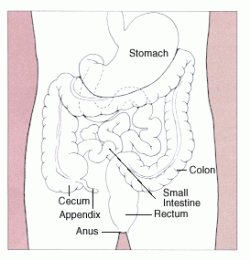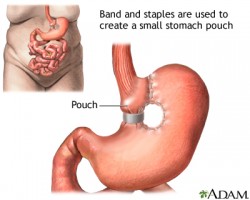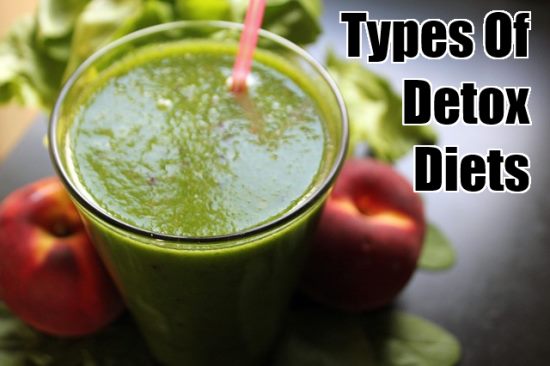How to Increase Leptin
Calories in, calories out is heavily over-simplified. If you really want to curb those cravings and take the reigns over your appetite, your leptin levels will have to be increased -- that's the hormone that tells you you're full. With leptin levels that are too low, you can eat and eat and eat and still be hungry. With a few tweaks to your diet and lifestyle, it is possible to up the levels in your system (provided everything's in working order). See Step 1 below to get started.
Steps
Part 1 Eating the Right Way
-
1
Limit your fructose consumption. Time to let science reign supreme: fructose inhibits your leptin receptors.[1] No two ways around that one. You may have plenty of leptin in your body, but if it can't be picked up and identified, it won't do you any good. So cut out the fructose -- namely, high fructose corn syrup -- to let your body do its job.
- Many processed foods contain fructose. The simplest way to reduce your intake is to avoid anything prepackaged.
-
2
Say no to simple carbs. It's about time we get used to this idea, huh? The fact of the matter is that simple carbs (refined, sugary, and generally white) spike your insulin levels, which in turn leads to resistance and messes with your leptin production. So white bread, white rice, and all those delicious baked goods that are calling your name are now on the no-no list (that's the technical term).
- Browner, darker grains such as whole oats, quinoa, and some whole wheat pastas tend to have more nutrients. Whiter foods have usually been stripped of them during processing.
-
3
Avoid severe calorie restriction. Some people will tell you to cut out carbs pretty much entirely. You can do this if you so choose, but be sure not to send your body signals that it's starving. If you're not getting enough nutrients, your body will start shutting down and your hormones will get all sorts of out of whack. And to top it off, you'll need massive amounts of will power because you'll be so hungry. Not a good setup for success.
- Yes, losing weight is good for leptin production. When you're at a healthy weight, your hormones regularize (in a normal situation, of course). If you're overweight or obese, it's a good idea to get on a diet plan -- just make sure it's healthy, balanced, and something you can maintain for the long-term.
-
4
If you are on a no-carb diet, have a refeed day. If you decided to make the leap to the Atkins/raw/paleo diet and you have pretty much nothing in the realm of carbs day in and day out, have a refeed day. Your body needs the carbs to fuel up and to realign itself and give your metabolism that awakening jolt it's been craving. Aim for 100 -150% more than normal on that one day and then resume your diet as normal.
- This is good for motivation, too. It's pretty impossible to avoid pizza for the rest of your life, but when you know you can have it on Saturday, it's easier to say no on Wednesday. There's a reason some people call this a "cheat" day!
-
5
Don't yo-yo diet. Seriously. Don't do it. It just messes with your metabolism and messes with your hormones, leaving a permanent mark. And you wind up gaining the weight back and then some! So pick a diet that is sustainable and healthy. Plenty of research points in the direction that diet is what makes or breaks you -- your body can't afford to have bouts of starvation between bouts of junk. It just can't keep up.[2]
- Crash dieting is another mistake that hurts you in the long run. Without the increase in leptin, you'll easily gain the weight back.
Part 2 Eating the Right Foods
-
1
Eat a protein-packed breakfast. This gets your leptin levels going right outta the gate. Your body will be fueled up for the entire day, keeping you feeling fuller, longer. So skip the doughnut (four cream puffs later and you're still asking what's for lunch) and go for eggs and lean meats.[3]
- When it comes to leptin, cereals have gotten a bad rap. They're full of lectin, which actually binds to your leptin receptors, keeping leptin from being able to do its job. It's like when your roommate is in the bathroom, only they never, ever leave.
-
2
Go fish. Omega-3 fatty acids are super good for increasing your body's sensitivity to leptin, making it more receptive. And they're great for your heart and cholesterol levels, too.[3] So load up on salmon, mackerel, herring, and all that delicious, flaky sea fare.
- Grassfed meats and chia seeds are good for Omega-3s, too. What you don't want are Omega-6s -- vegetable oils, conventional meats, and grains. These lead to inflammation and reduce leptin levels overall.[4]
-
3
Eat lots of leafy greens, fruits, and other veggies. Fruits and veggies (especially ones like spinach, kale, and broccoli) are jam packed with nutrients and yet have few calories -- that means you can eat a ton, fill up fast, and not see it on your waistline. Since leptin has a lot to do with weight control, having a diet high in these foods means you're doing your part, taking care of your body yourself.
- Fiber is also great for leptin levels, mainly because it keeps you feeling full -- and generally fiber-rich foods are natural and good for you in other ways, too. Peas, beans, lentils, almonds, raspberries, broccoli, and oats are all great sources.[5]
-
4
Skip sweeteners and snacks. As for the sweeteners, those are just an extra artificial flavor zing that you don't really need. In fact, some people go as far as to say don't use commercial soaps and deodorants to avoid putting toxins in your body.[6] How far do you want to take it?
- As for the snacking part, it's generally believed that your body needs to reset itself; if you're snacking constantly, it can't really do that. But if the snacking bug hits and you can't resist, aim for a piece of fruit or a handful of nuts to curb the craving.
- 5 Go for foods high in zinc. Studies have shown that those with leptin deficiencies also usually have zinc deficiencies -- and strangely enough, obese people generally have them, too.[7] So combat this phenomenon by loading up on spinach, beef, lamb, seafood, nuts, cocoa, beans, mushrooms, and pumpkin.[8]
Part 3 Having the Right Lifestyle
-
1
Destress. When we're anxious and strung out, our body ups our production of cortisol. That cortisol then messes up the rest of our hormones, including leptin. If you've heard of stress eating, you'll understand the connection. So if relaxing is something you don't remember how to do, make it a point to relearn. Your leptin levels depend on it!
- If it's not already part of your routine, experiment with yoga or meditation. They've both been shown to have relaxing effects, leading to better sleep and lower cortisol levels. Don't knock 'em till you've tried 'em!
-
2
Get some zzz's. This gets straight to the source: sleep regulates your leptin and ghrelin levels (ghrelin is the hormone that tells your body you're hungry). Not enough rest and your body starts producing ghrelin and not producing leptin. So hit the hay in time to get about 8 hours every night.
- To make it easier to do, cut out using electronics a couple hours before bedtime. The light tells our brains that it's important to stay awake and thus we feel more alert. Cut them out earlier and your brain will know it's time to go to bed.
-
3
Don't exercise too much. Crazy. Never thought you'd hear that, huh? But yep -- there's such a thing as cardio burnout when it comes to leptin. Too much cardio (the endurance, long-lasting kind) raises cortisol levels, increases oxidative damage, systemic inflammation, depresses the immune system and decreases fat metabolism. None of these things is good for you! So take this as an excuse to skip the gym once in a while -- indeed, too much of a good thing is bad.[9]
- For the record, some cardio is fine. Interval training (especially high-intensity interval training) is great for you, as long as you don't overdo it.
-
4
...But be sure to exercise a little. On the other hand, leading a sedentary lifestyle isn't good for you, either. So when you do hit the gym, stick to cardio interval training (running for a minute, walking for a minute in 10 or so cycles, for example) and some weightlifting. You want to be healthy and relatively fit -- not a skinny couch potato.
- Make it a point to be active naturally. Instead of forcing yourself to go to the gym, go for a hike, go to the swimming pool, or initiate a basketball game with friends. Exercise doesn't have to be "exercise," you know? At least it doesn't have to feel like it!
-
5
Consider medications. There are currently two medications on the market right now that can deal with leptin: Symlin and Byetta.[10] For the record, they're actually on the market to fight Type II diabetes, but leptin is a part of that. If you think you're a candidate, talk to your doctor. Only he or she can point you in the right direction.
- Your doctor can test your leptin levels. If something's off, they'll be able to see right away. However, the first thing they'll tell you is to work on your diet and your lifestyle; there is no easy way out (like a medication) when it comes to this hormone regulation.
-
World Breastfeeding Week 2016 – Weight Loss Tip #151– Breastfeed to lose weight
-
Eat Well and Lose Weight
Is your waistband tighter than you’d like? Have you finally
-
Weight Loss Made Simple With These Tips
TIP! If you want to lose some weight, you should think about
-
Losing At Losing Weight
Why is losing weight so difficult for people and how many times have
-
Fight Fat With These Weight Loss Tips
TIP! You can lose weight effectively by gradually reducing th
-
4 Ayurvedic Tips For Weight Loss
A lot of people dealing with the pressures of urban living, struggle
- DON'T MISS
- Is Weight Reduction Surgery the Right Choice?
- Weight Loss Tip #86 — Add curry leaves or kadi patta to your meals
- 5 Healthy recipes with Cinnamon
- Weight Loss Tip #79 – Practice fast-paced yoga styles
- How One Woman Lost 12 Pounds And 17 Inches Just By Working Out 10 Minutes A Day
- Spray Yourself Thin?
- How to Incorporate Fat Burning Foods Into Your Diet
- 7 Essential Metabolism Boosters
- The Paleo Revolution
- Weight Loss Tip #96- Do not go hungry for too long




